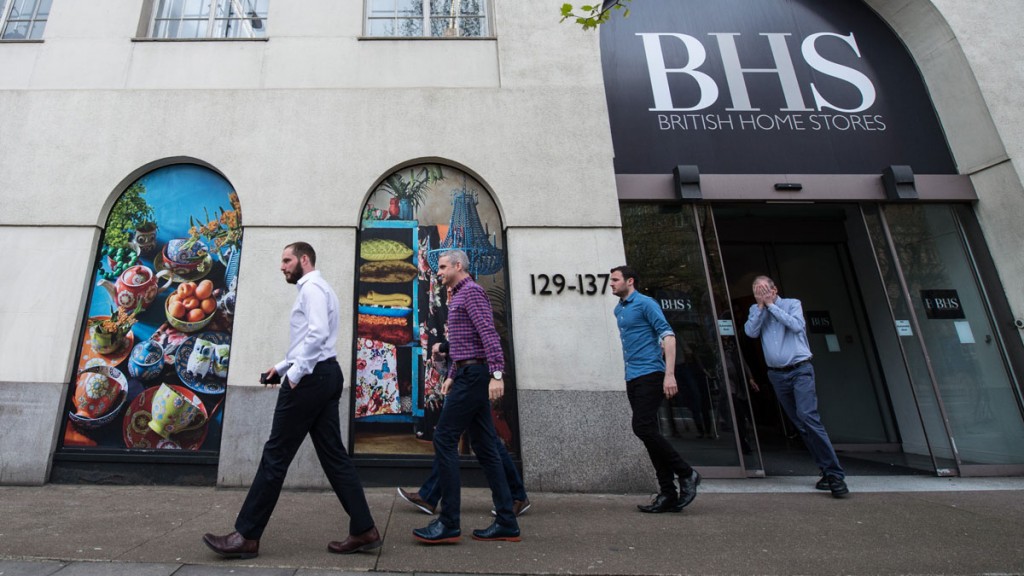
What killed BHS and how can we stop it happening again? I went on BBC Radio 4’s World Today last night to discuss the matter (you can listen to it on the BBC iPlayer or download the MP3 here, the segment begins around 7’40”). As it turns out, it is a subject about which it is easy to get confused. There is a view that it was the pension fund that did for the company. Not so. It was being a badly handled business that did it.
Back in the early 2000s it seems that Philip Green approached BHS via a standard leveraged buyout. He bought the business, shovelled as much debt onto it as possible and then took out a few hundred million. This isn’t nice. But it is entirely legal, 100% encouraged by our tax system (which gives preferential tax treatment to debt over equity) and often remarkably lucrative (there’s a good, if dense, report on this from the European Commission here).
The problem with this kind of thing is obvious (we’ve written about it here many times before see this piece by Andrew MacNally): high levels of debt leave companies very vulnerable when trouble comes – as it has to the UK’s high street. It raises the obvious risk of bankruptcy. But its very existence also has a tendency to reduce the firm’s chance of commercial success in the first place: a management focused on finding the cash to pay belligerent creditors every month is not a management focused on long-term management itself.
BHS may well not have made it through the trauma on the UK high street anyway. But the huge debt burden it has been hoisting around left it without much of a chance. BHS failed not because it had a whopping pension deficit, but because it was a bad business with too much debt operating in a lousy sector. Had that not been the case – had it been profit making as a long-term going concern, its pension deficit would have been an unpleasant problem to be dealt with in a series of uncomfortable conversations between the fund’s trustees and the firm’s management. Nasty. But not critical.
So how do we stop companies such as BHS collapsing? The obvious answer has two parts. The first is that we can’t stop them all going – capitalism is only supposed to provide for the survival of the fittest of corporations. The second is that we can give more companies more of a fighting chance of long-term survival by changing the way we treat debt within our tax system (something George Osborne has already made a start on).
We all always say we want to encourage firms to make long term growth their priority. BHS is another reminder that there is an easy way to do it.